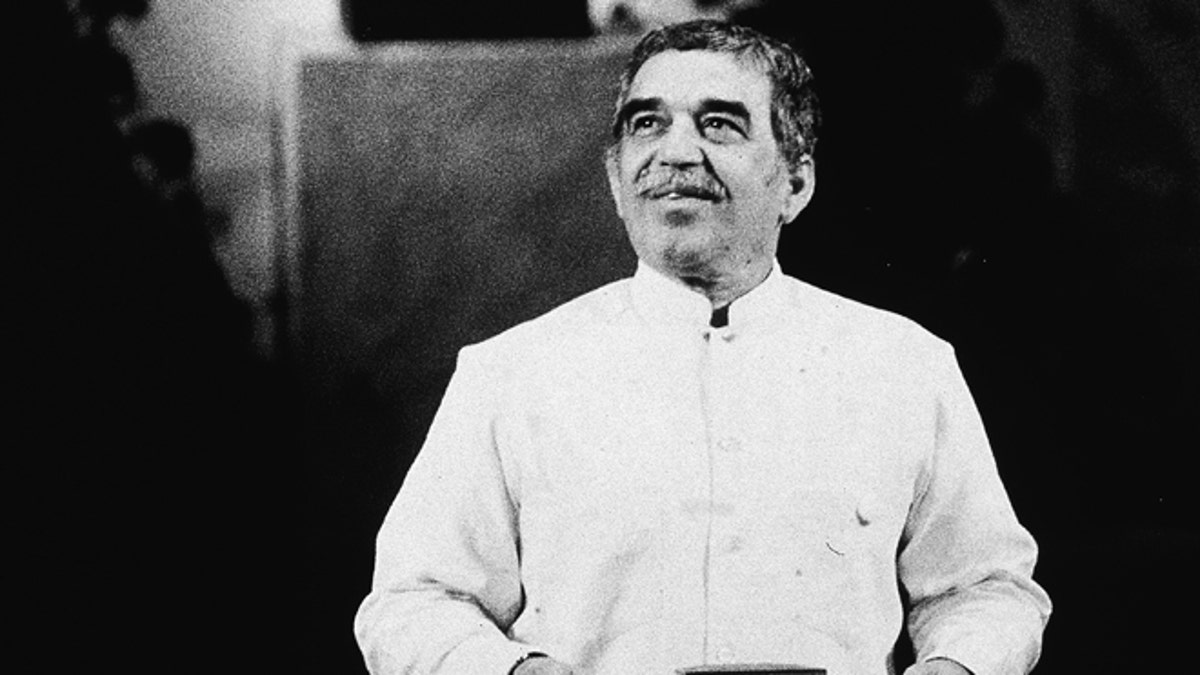
Garcia Marquez speaks at a podium after receiving the Nobel Prize in Literature, Sweden, 1982. (2004 Getty Images)
(Listen to Gabriel García Márquez's Nobel Prize speech below.)
When the Nobel Foundation awarded Gabriel García Márquez the Nobel Prize in Literature in 1982, their justification was clear: "for his novels and short stories, in which the fantastic and the realistic are combined in a richly composed world of imagination, reflecting a continent's life and conflicts."
"Latin America neither wants, nor has any reason, to be a pawn without a will of its own; nor is it merely wishful thinking that its quest for independence and originality should become a Western aspiration."
García Márquez, who died on Thursday at age 87, was a master of the magical realism literary genre and gained fame after his 1967 novel "One Hundred Years of Solitude," a masterpiece which has sold more than 30 million copies and has been translated into 37 languages. As the New York Times points out, "The novelist William Kennedy hailed it as “the first piece of literature since the Book of Genesis that should be required reading for the entire human race."
But while millions have been influenced by his books, there is one piece of literature that sometimes gets lost entitled "The Solitude of Latin America," the speech García Márquez gave when he accepted his Nobel award on December 10, 1982.
"I have this great opportunity,'' García Márquez told the New York Times about the chance to speak on the world stage. ''I must try and break through the cliches about Latin America. Superpowers and other outsiders have fought over us for centuries in ways that have nothing to do with our problems. In reality we are all alone."
García Márquez stood before the world and used the Nobel platform to tell the world that Latin America was not beneath the old European powers, and was a legitimate region here to stay.
"Latin America neither wants, nor has any reason, to be a pawn without a will of its own; nor is it merely wishful thinking that its quest for independence and originality should become a Western aspiration," he said in his speech. "However, the navigational advances that have narrowed such distances between our Americas and Europe seem, conversely, to have accentuated our cultural remoteness. Why is the originality so readily granted us in literature so mistrustfully denied us in our difficult attempts at social change?"
He went on to say about Europe, "It is only natural that they insist on measuring us with the yardstick that they use for themselves, forgetting that the ravages of life are not the same for all, and that the quest of our own identity is just as arduous and bloody for us as it was for them. The interpretation of our reality through patterns not our own, serves only to make us ever more unknown, ever less free, ever more solitary."
You can listen to his full speech below or read the English translation here.







































